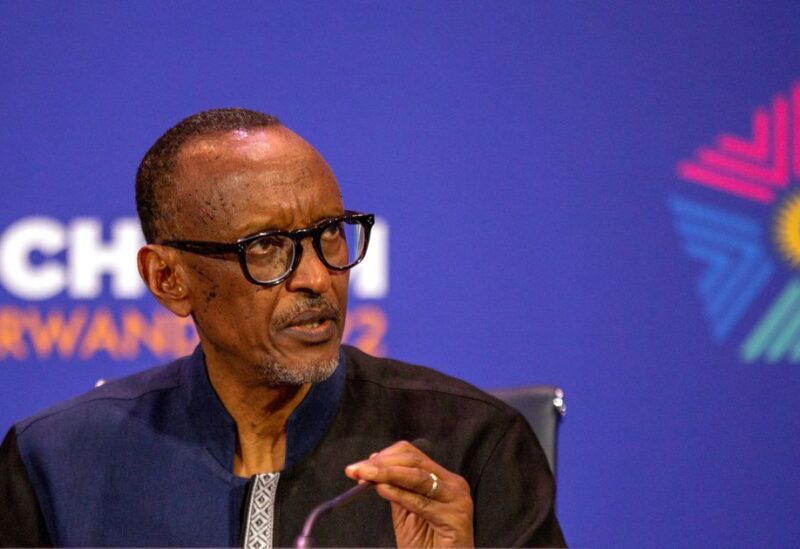
Rwandan President Paul Kagame addresses a news conference
The East African Community (EAC) bloc said on Friday that former Kenyan president Uhuru Kenyatta and current president of Rwanda Paul Kagame had reached an understanding over the necessity for M23 rebels to end hostilities and leave territories they have taken over in east Congo.
For the first time since 2012, the M23 rebels have launched numerous offensives in east Congo, sparking battles with the army that have resulted in the displacement of thousands of civilians since March.
The unrest ignited diplomatic tensions between Congo and neighbouring Rwanda, which Congo accuses of backing the group. Rwanda denies the accusation.
Regional efforts are under way to ease relations between the two countries and end the conflict unfolding along their border.
Kenyatta visited Congo this week as facilitator for the seven-member EAC and African Union peace envoy.
He had meetings in Kinshasa and visited displaced people in the key eastern city of Goma, to which the M23 drew closer this week.
Upon his return, Kenyatta and Kagame both agreed via telephone “on the need for an immediate ceasefire”, the EAC said in a statement.
Kagame also agreed to assist Kenyatta in urging the M23 to lay down arms and withdraw from captured territories, the statement added.
Modalities will be discussed during a second round of talks in Angola’s capital Luanda next week, it said.
Angola’s President Joao Lourenco mediated a first meeting between Congo and Rwanda officials earlier this month.
“It is encouraging to see Paul Kagame recognize that he can influence the M23,” Congo’s President Felix Tshisekedi’s deputy spokesperson told Reuters.
“We will see what happens on the ground,” she added.
Rwanda’s government spokesperson did not immediately respond to a request for comment.
When it formed in 2012, M23 was the newest in a series of ethnic Tutsi-led insurgencies to rise up against Congolese forces.
Rebels seized vast swathes of territory in 2012 and briefly overran Goma before they were chased out by Congolese and United Nations forces into Uganda and Rwanda the following year.
They have staged three major offensives since March. The latest at the end of October caused a new wave of displacement.